A guide to working safely on our campuses
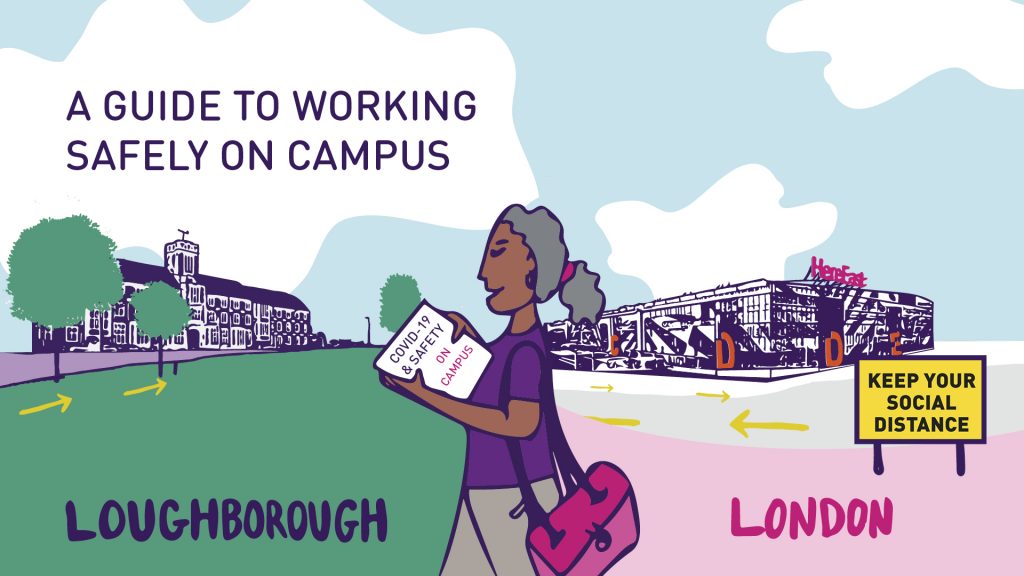
Following the guidelines set by the government, we’re slowly beginning to resume on-campus activity in Loughborough and London. As a result, more staff members are already working on our campuses or making preparations to do so soon.
For most of us, this will involve a combination of working on campus and at home, and the extent to which colleagues are on campus will depend on the nature of the role.
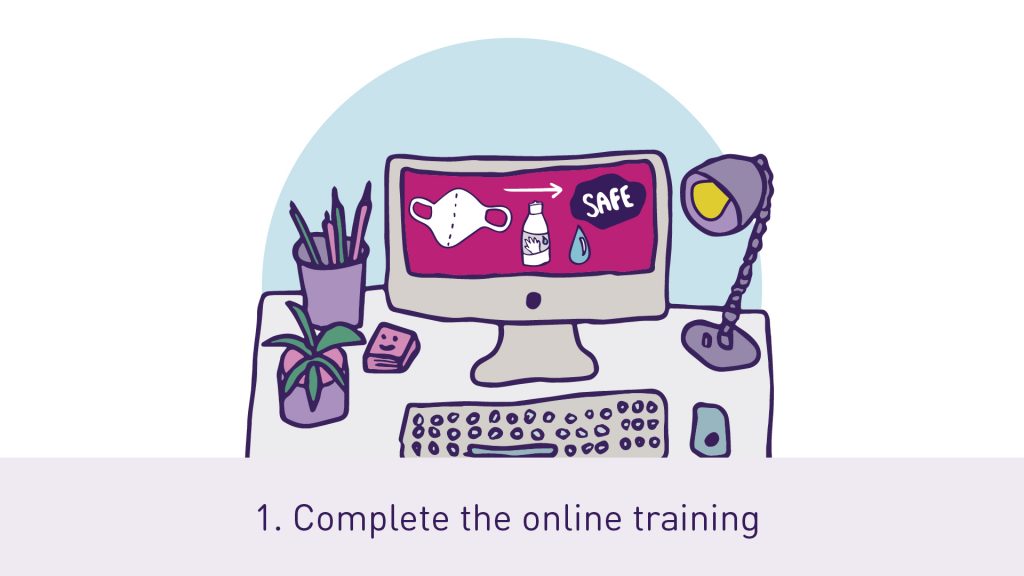
Before you come back on to campus, make sure you’ve completed the online training on Learn. The course is available in both text and video format and provides guidance on accessing buildings and following social distancing measures when using communal facilities, offices, labs and workshop spaces, as well as staircases and lifts.
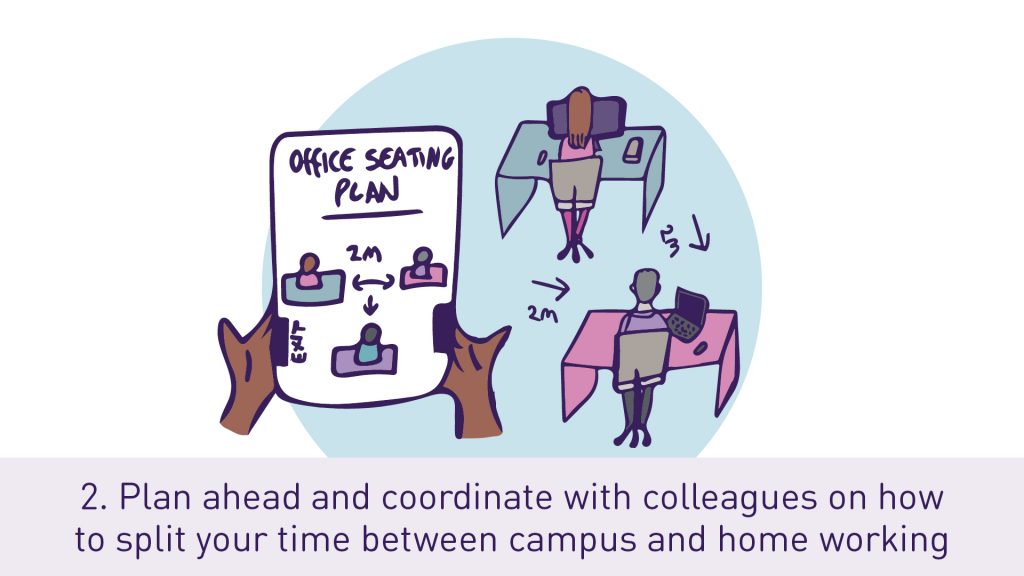
It’s important to stay in touch and proactively plan ahead with your colleagues to make sure everyone can follow the guidance and stay safe. For example, social distancing will mean that fewer people can work in an office at any given time. Therefore, managers should put a rota system in place. It may also mean you need to use a different desk or workspace, so having a plan and keeping lines of communication open will make things more manageable.
Cleaning arrangements will be in place but given desks and work equipment may need to be shared with others, it will be important to clean them after use. Warm water and soap or washing up liquid will deactivate the virus more effectively than alcohol wipes – you can then leave them to dry or use paper towels, as tea towels are not as hygienic.
If you have taken chairs, docking stations or other equipment home with you, discuss with your line manager where you will be spending most of your time. If that is back on campus, we would advise to bring them back with you when you return.
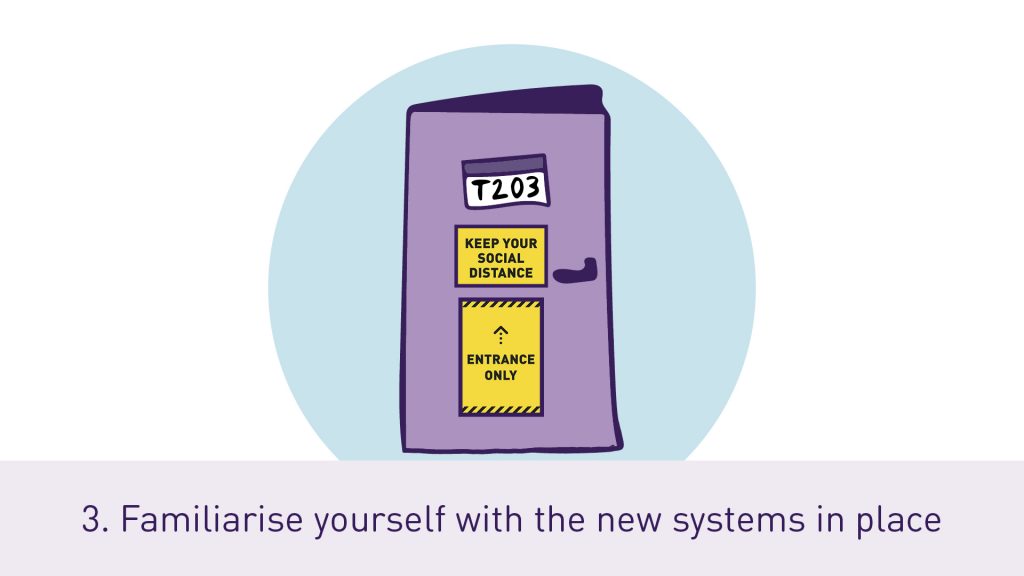
Once you have arrived on campus, keep an eye out for the various posters, signs and floor markings in the buildings – they will provide clear instructions or directions on one-way systems, including entrances and exits. It might be quite different from how you’ve previously navigated your building, so it’s worth spending some time having a look around to familiarise.
The video below gives you an overview of what some of the key buildings on campus will look like, as well as the signage and protocols in place.
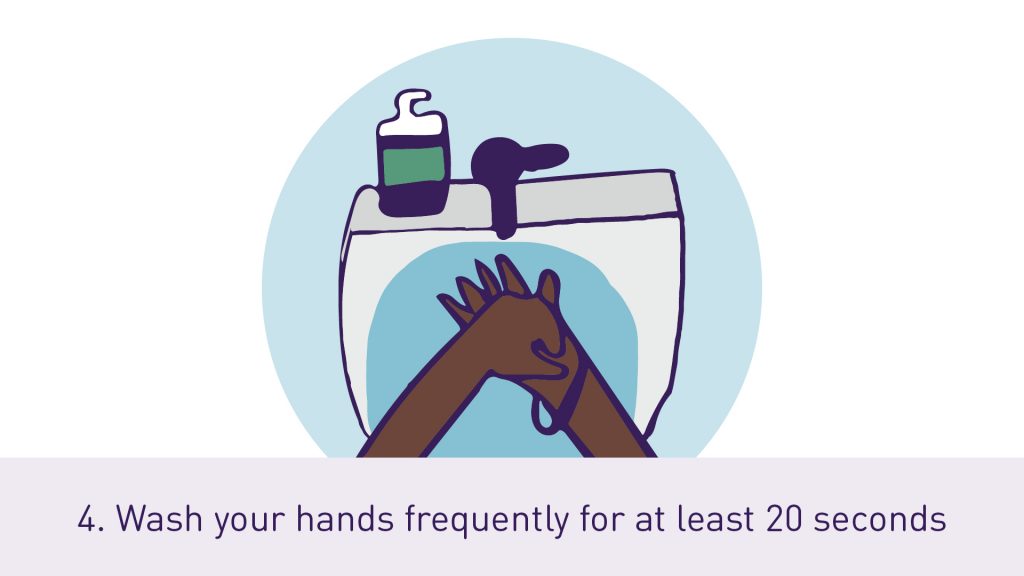
In line with government guidance, everyone should wash their hands frequently and for at least 20 seconds at a time with soap and water. Posters have been put up in toilet and kitchen facilities with NHS guidance on how to wash your hands most effectively. You should also avoid touching your face and other surfaces with unwashed hands.
Biological Safety Officer, Julie Turner explains in this video why hand washing is so important in stopping the spread of the virus.
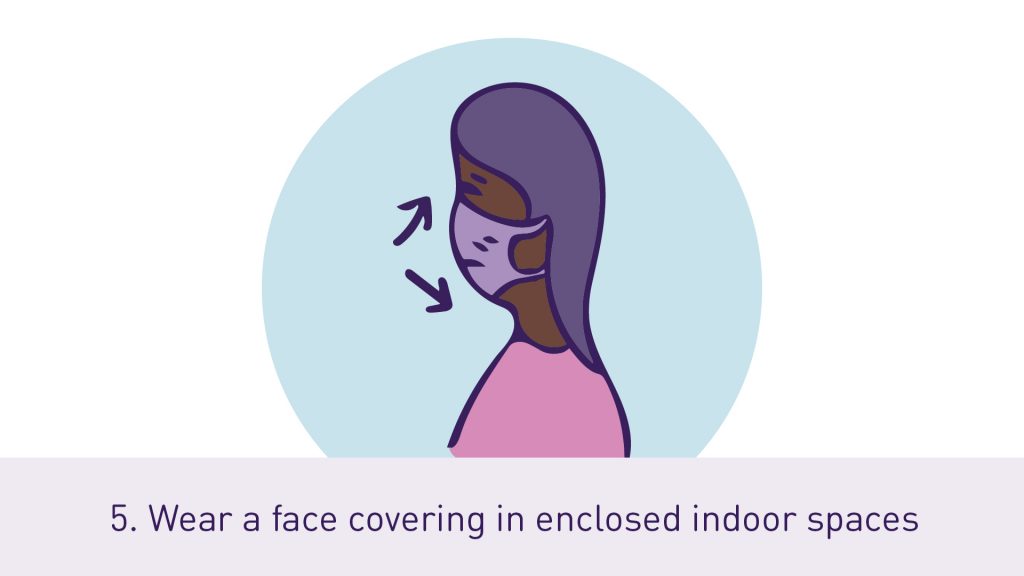
Whilst wearing a face covering is not a substitute for social distancing and good hand hygiene, they will be required in all indoor public spaces:
- Common indoor public areas, for example communal areas such as EHB and James France
- Lecture theatres and teaching rooms
- Multi-occupancy toilets
- Main thoroughfares and common communal areas
Face coverings are not, however, required in offices, laboratories, or areas where it may be impractical (for example, when eating and drinking).
The University’s face covering policy is available in full here.
When wearing a face covering, it should cover your nose, mouth and chin and be washed regularly, unless it is a disposable one, in which case discard it after use.
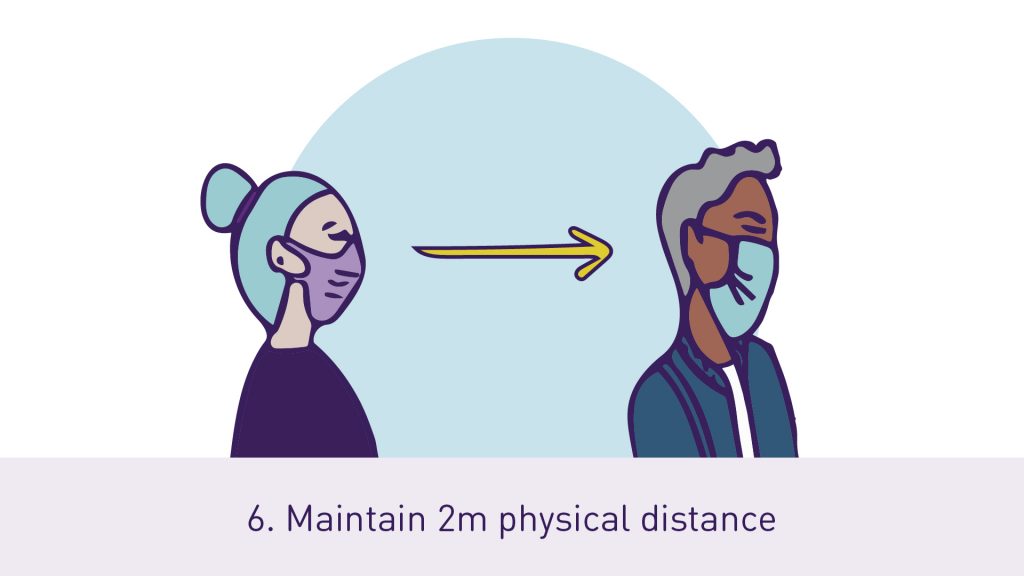
You should keep at least two metres apart from others, both within buildings and outside at all times wherever possible.
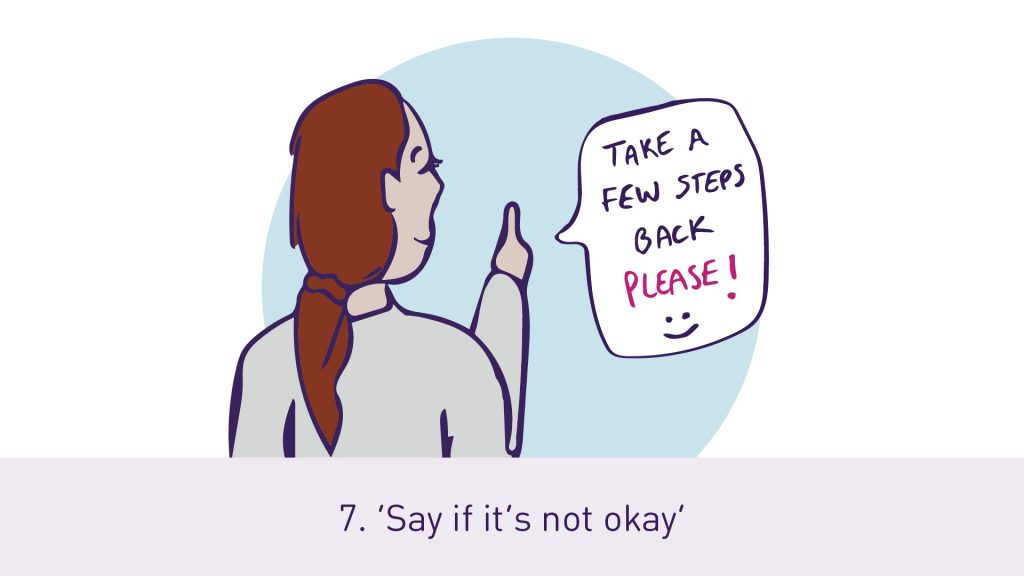
Staying safe is a team effort and we all have a role to play. If you spot someone who isn’t following the guidance, you should feel confident in being able to say something, no matter who it is.
For example, if someone is standing too close, or enters a space (such as a shared kitchen) where it’s one in-one out, you can politely ask that they take a few steps back, or that they wait a few minutes until you’re done.
But be considerate of others. It could be a genuine mistake as we’re all adjusting to new environments and ways of working.
While it’s encouraged that we ask each other to uphold high standards of safety, it’s important to remain aware of the different needs within our community – for example, some people with disabilities are exempt from wearing a face covering, and people with visual or hearing impairments may not be able to see or hear you.
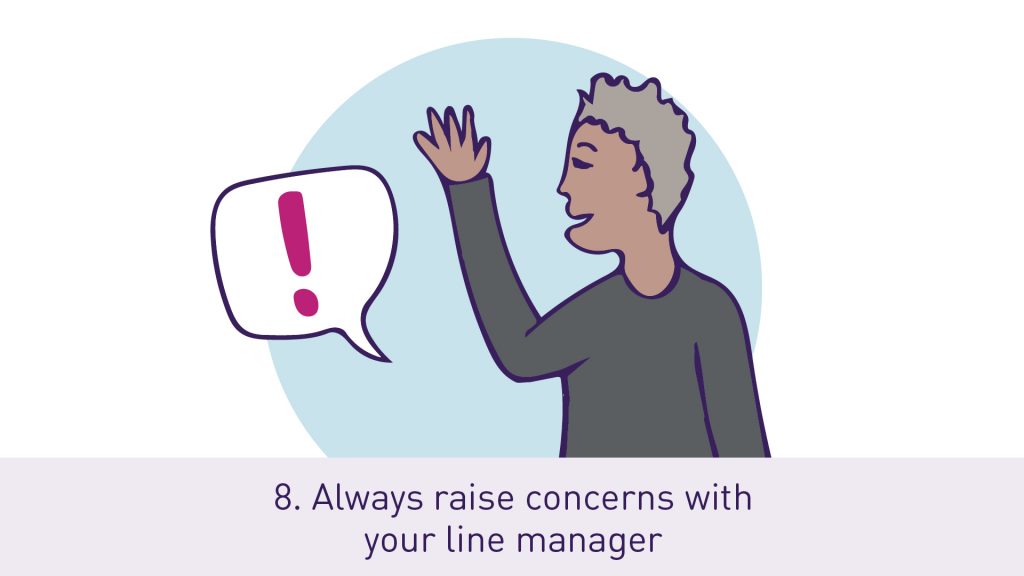
It’s important to stay in contact with your line manager, especially if you have any concerns about working on campus – whether about safety, childcare, managing your workload or any other issues – an initial conversation can help identify what support is needed.
If you are worried you have symptoms of COVID-19, or have been told to self-isolate, do not come on to campus. Similarly, if you are concerned about a close relative or have other personal circumstances that need to be addressed, make sure your line manager is aware of your situation so arrangements can be made.
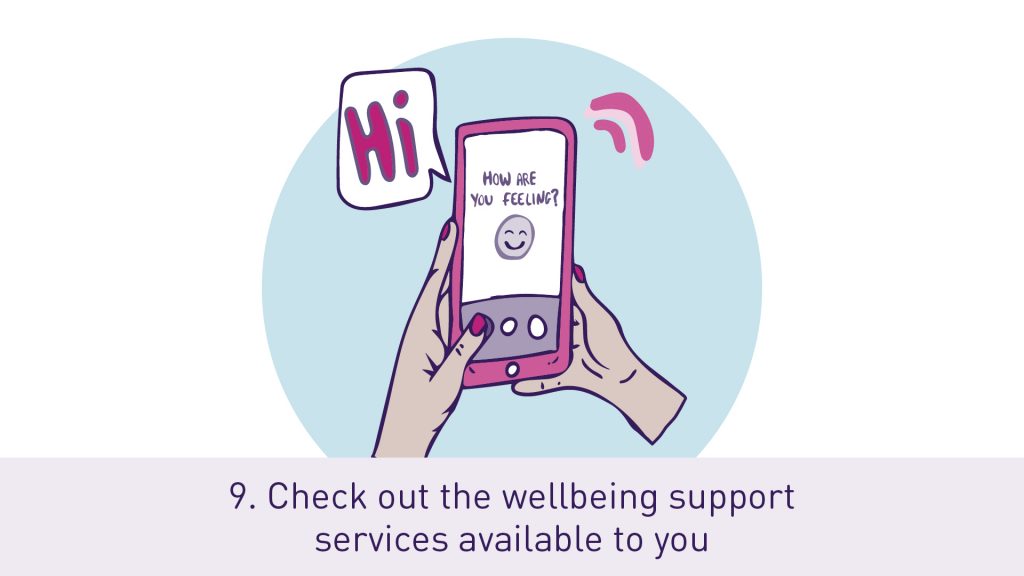
Your health and wellbeing remains a priority, and there are a range of services that can help should you need some extra support:
- The Employee Assistance Programme – an external, confidential service which staff members can access 24/7, 365 days a year for support on their personal or professional life obstacles
- The LU Wellbeing app – a digital toolkit for staff and students to aid your mental health using a holistic approach based on the NHS’s five ways to wellbeing
- Happy and healthy at home – This support page has been created to provide you with advice and guidance to ensure that while you’re working from home, you’re healthy, happy and productive.
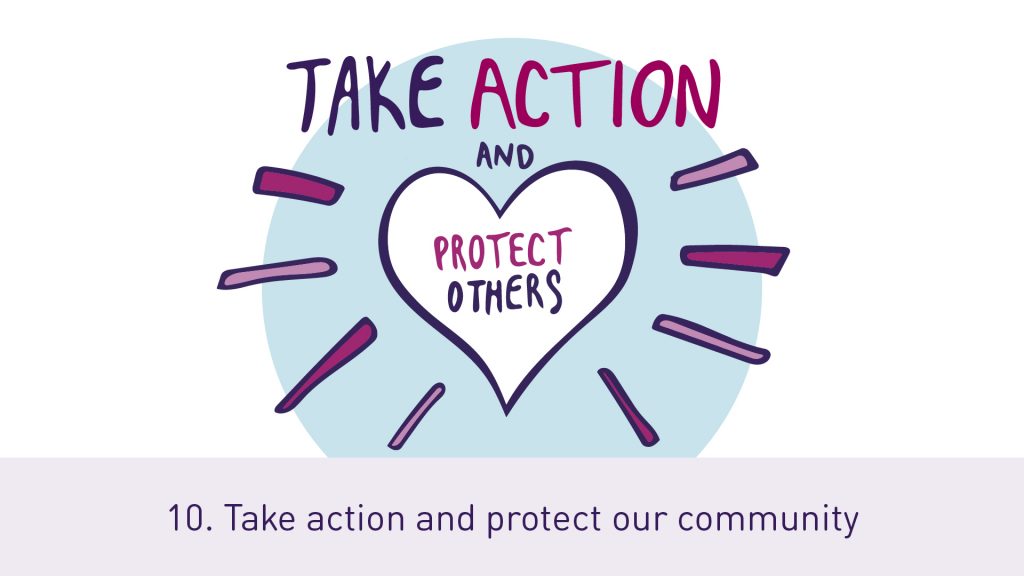
Working together to follow the guidance and systems in place will give us the best chance of keeping our campuses safe for all who use them.
Whether you’re yet to come back on to campus or you are on site regularly, take a look at the Back to Campus website which has further guidance and information for staff.
Health and Wellbeing
Wellbeing means being in a positive physical, social and mental state. Wellbeing is important to us as happy, healthy people who achieve harmony in their work / life mix are more creative, productive and help to create a great place to work.